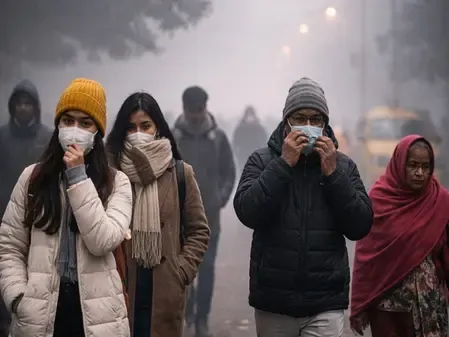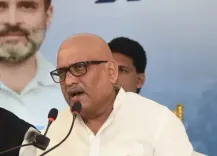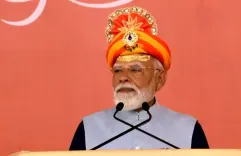How Are Rajasthan Workers Responding to New Labour Codes?

Synopsis
Key Takeaways
- Labour codes enhance wage security.
- Health benefits include mandatory screenings.
- Timely payments and minimum wage guarantees are established.
- Appointment letters for all workers improve transparency.
- Overtime payments recognized at double the rate.
New Delhi, Nov 23 (NationPress) The recent labour reforms introduced by Prime Minister Narendra Modi have begun to significantly impact workers in Rajasthan, particularly in Bharatpur, where private-sector employees are expressing their appreciation for the government's efforts to enhance wage security, health benefits, and overall protection for the workforce in India.
These new labour codes have conveyed a hopeful message throughout the nation, especially for low-income and private-sector workers.
Shivram Singh, a private employee, shared with IANS that these reforms are set to benefit approximately 40 crore workers across the country.
Singh emphasized that the reforms guarantee minimum wages, ensure timely compensation, and provide health and job security for those in unorganised and private sectors.
He stated that the reforms will serve as a substantial shield against exploitation, particularly for daily wage earners and those reliant on private employment.
“Previously, numerous underprivileged workers were denied fair wages and timely payments. However, with the government’s established minimum wage, workers will now receive their rightful earnings promptly. This will greatly assist their families,” he remarked.
Singh also noted that many private sector workers often faced challenges due to a lack of proper documentation. The new regulations now mandate the issuance of appointment letters to all workers.
“This will ensure transparency and confirm rightful payment for the labour they contribute,” Singh stated.
Regarding health benefits, Singh pointed out the significance of the newly introduced ‘40-plus health screening’ provision, calling it a considerable relief for low-income families.
He highlighted that basic medical tests typically range from Rs 500 to Rs 1,000, a cost many workers cannot bear. “With routine health screenings, illnesses can be identified early, allowing workers to receive timely medical care,” he added.
Another private employee, Yoga, informed IANS that the government has also ensured that overtime compensation will now be paid at double the standard rate, acknowledging workers for their extra hours.
“This initiative will improve workers' financial stability and bolster the nation’s productivity and economic growth,” he asserted.
Both workers expressed that Prime Minister Modi’s ambition of transforming India into a developed nation by 2047 hinges on empowering its workforce.
They are confident that the latest labour reforms demonstrate the government’s dedication to enhancing the lives of workers and fortifying the nation’s economic structure.










